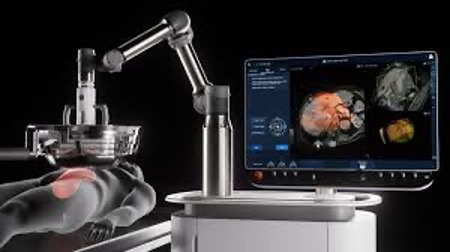Return to the Scorecard
A University of Michigan researcher adjusts experimental equipment for quantum information science studies.
Case Study
University of Michigan
Share
The University of Michigan: Driving Innovation and Economic Impact in Michigan
The University of Michigan (U-M) has consistently driven innovation and played a pivotal role in fueling Michigan’s economic growth. With its extensive research enterprise and ability to attract talent and ideas from around the world, U-M is instrumental in fostering emerging industries and diversifying the state’s economy. U-M has strengths in shaping the future of Michigan’s leading industries—such as the Mcity Test Facility the supports the development of connected and automated vehicle technology. It’s also a driver of nascent industries in the state, with over half of U-M’s research focusing on life sciences, and progress in fields like artificial intelligence, advanced energy, and advanced materials.
Top Universities for Startup Creation (5 Year-Average)
2019-2023
Startup Creation and Retention Challenges
U-M’s success in launching startups is on par with that of Stanford and MIT—with many of them built around innovative technology and intellectual property developed on campus. However, these young enterprises often lack the resources they need to grow and thrive within Michigan, leading many to seek the talent, space, and capital they need elsewhere. While U-M is dedicated to sharing its ideas with the world, building an ecosystem that supports more of those ideas locally would create a positive feedback loop and drive significant economic impact and job creation for Michigan. To help bridge these gaps, the university has partnered with foundations and state government to create funding options to support U-M startups, including:
- Accelerate Blue Fund, launched in 2019 as an early-stage venture fund that exclusively invests in U-M licensed startups with an aim to operate as a $20 million evergreen fund that can continuously reinvest in new U-M startups
- MTRAC Hubs for Life Sciences Innovation and Advanced Transportation, which provide funding to advance university and hospital research projects from across the state toward commercialization as part of the MEDC-funded Michigan Translational Research and Commercialization (MTRAC) program. In the first 10 years since these hubs invested $31 million, enabling 74 startups to launch and attract $496 million in follow-on funding.
- Technology Transfer Talent Network (T3N), which sends business experts into university labs to help get inventions to market. Administered jointly by U-M and Michigan Tech with support from the MEDC, that mentorship and statewide university research commercialization support has enabled the launch of 193 startups that have attracted $1.6B in investment, creating over 900 jobs.
U-M Startup Formation - Michigan based vs. Out of State
No Data Found
Partnering with Industry for Mutual Benefit
Through corporate-sponsored research awards and collaborative initiatives, the university works to align its innovation enterprise to the needs of industry. U-M secured an average of $193 million per year in corporate-sponsored awards from 2022-2024, enabling the co-development of cutting-edge technologies and facilitating the translation of research into real-world applications. The university has ongoing partnerships with Ford and Toyota, as well as for healthcare projects with the investment firm Deerfield.

HistoSonics uses a non-invasive, sonic beam therapy to destroy targeted tumors at a sub-cellular level.
HistoSonics
HistoSonics, a pioneering spinout from the University of Michigan, is redefining cancer treatment with its non-invasive sonic beam therapy that has been approved by the FDA for the removal of liver tumors. Using histotripsy technology, focused ultrasound waves target and liquefy tumors at a sub-cellular level, enabling “surgery without a scalpel.”
Founded over two decades ago, HistoSonics is emerging as a leading technology from U-M, having treated over 1,000 patients. The company is advancing clinical trials to enhance regulatory approval and uptake for tumors of the kidney and pancreas.
With headquarters in Minneapolis, an important med-tech hub, and a $60 million advanced research center in Ann Arbor, HistoSonics has generated 30 high-skill jobs in Michigan and frequently hires U-M graduates, reinforcing its university connections.
HistoSonics received mentor-in-residence support from the T3N program, and showcases how U-M’s innovations can yield transformative technologies, enhance patient care, and fuel economic growth, emphasizing the potential of university spinouts to create novel therapies for human disease.

Neurable’s MW75 Neuro headphones use brain computer interface technology to track brain activity and improve focus.
Neurable – Pioneering the Future of Human-Computer Interaction
Neurable, a U-M spinout, is at the forefront of human-computer interaction, using proprietary brain-computer interface technology to harness the brain’s power for enhancing everyday device usage.
Founded in Michigan, Neurable faced challenges in raising $400,000 in pre-seed funding despite early success with state and federal grants, including support from the National Science Foundation. Reluctant to leave Michigan, the company eventually moved to Boston to join an accelerator program. This strategic move eventually enabled Neurable to raise $35 million, build a team of over 30 people, and launch its initial product.
With a stronger innovation ecosystem in Michigan, companies like Neurable that want to stay local would have an easier time building their products and industries—like brain-computer interfaces—here.
“We actually didn’t want to leave Michigan. We had a home base, a ton of support from the university, and were already situated… However, we tried fundraising in the Midwest for 6 months and got nowhere… it wasn’t until we went to Boston where we were able to close our round within three weeks and where we ultimately moved the company.”
– Dr. Ramses Alcaide, Founder and CEO, Neurable